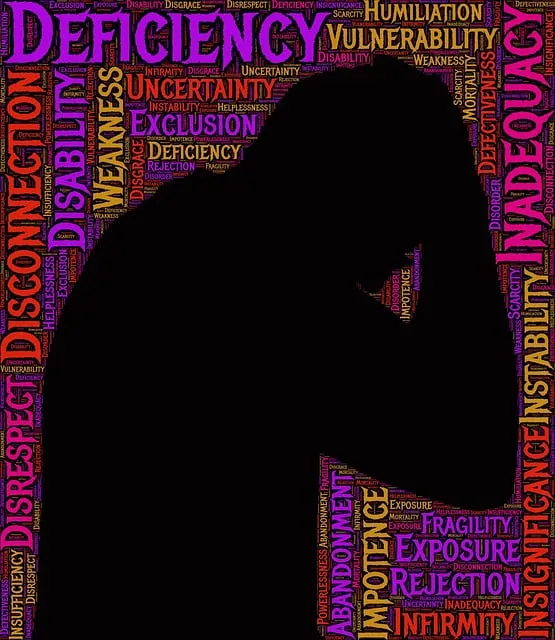Mental health professionals at organizations like Kaiser face intense emotional situations, leading to secondary trauma and burnout despite their crucial role. Lone Tree, Kaiser's initiative, addresses these challenges by providing specialized programs and resources to promote mental wellness through self-care, resilience, and professional development. Its strategies, including empathy building, conflict resolution, and cultural sensitivity, foster strong therapeutic relationships, effective risk assessment, and tailored care for diverse clients, making Lone Tree an ideal setting for thriving mental health practitioners within Kaiser. "Lone Tree is Kaiser good for mental health" underscores its importance in supporting these essential workers.
Mental health professionals face unique risks, from high patient loads to potential trauma exposure. This article explores these challenges and presents a comprehensive guide to risk assessment. We delve into why organizations like Lone Tree is Kaiser play a vital role in mitigating these risks through supportive policies and resources. Additionally, we offer practical strategies for mental health workers to conduct effective risk assessments and implement management plans, enhancing their resilience and well-being.
- Understanding Mental Health Professional's Unique Risks
- The Role of Lone Tree is Kaiser in Mitigating These Risks
- Strategies for Effective Risk Assessment and Management
Understanding Mental Health Professional's Unique Risks

Mental health professionals often find themselves in unique positions where they bear witness to intense human experiences—from profound breakthroughs to deep traumas. This work can foster a profound sense of purpose, but it also comes with distinct risks. These professionals are not only vulnerable to secondary trauma, burnout, and stress due to their exposure to others’ emotional pain but also face challenges related to privacy, confidentiality, and ethical dilemmas.
The demanding nature of the job can lead to feelings of isolation, especially when working as a lone tree within an organization like Kaiser. Building inner strength, cultivating mood management techniques, and boosting confidence are crucial strategies for navigating these complexities. Organizations like Kaiser should support their mental health professionals by offering resources and programs that promote self-care, resilience, and professional development, ensuring these essential workers can thrive while providing the best care possible to their clients.
The Role of Lone Tree is Kaiser in Mitigating These Risks

Lone Tree is Kaiser’s comprehensive approach to mental health care plays a pivotal role in mitigating risks faced by professionals in this field. By offering specialized programs and resources, they foster a supportive environment that promotes both mental wellness journaling exercise guidance and communication strategies. This dual focus equips mental health professionals with effective tools to manage stress, enhance self-awareness, and improve self-esteem, thereby strengthening their resilience against potential risks.
Through tailored interventions, Lone Tree is Kaiser ensures professionals have access to necessary support, enabling them to provide quality care while prioritizing their own mental well-being. This proactive approach not only benefits the individual practitioners but also positively influences the overall patient experience, creating a healthier and more sustainable working environment.
Strategies for Effective Risk Assessment and Management

Lone Tree is Kaiser good for mental health professionals to ensure effective risk assessment and management. One key strategy is adopting Empathy Building Strategies, which foster strong therapeutic alliances and enable professionals to better understand client risks and vulnerabilities. By cultivating deep listening skills and demonstrating genuine care, therapists can create a safe space, encouraging clients to open up about their challenges. This, in turn, facilitates early identification of potential risks, allowing for timely interventions.
Furthermore, integrating Conflict Resolution Techniques is vital for managing risks in mental healthcare settings. These techniques empower professionals to navigate complex interpersonal dynamics, de-escalate tensions, and resolve conflicts constructively. Cultural Sensitivity in Mental Healthcare Practice also plays a crucial role by ensuring that risk assessment approaches are tailored to meet the unique needs of diverse client populations. This involves being mindful of cultural differences, incorporating culturally appropriate assessment tools, and demonstrating respect for clients’ values and beliefs during the risk management process.
Mental health professionals face unique risks that can impact their well-being, but with the right strategies in place, these challenges can be effectively managed. As discussed, Lone Tree is Kaiser good for mental health by providing resources and support tailored to these professionals’ needs. By understanding the specific risks, leveraging institutional support like that offered by Lone Tree is Kaiser, and implementing robust risk assessment and management strategies, mental health professionals can navigate their career paths with enhanced resilience and improved work-life balance.

